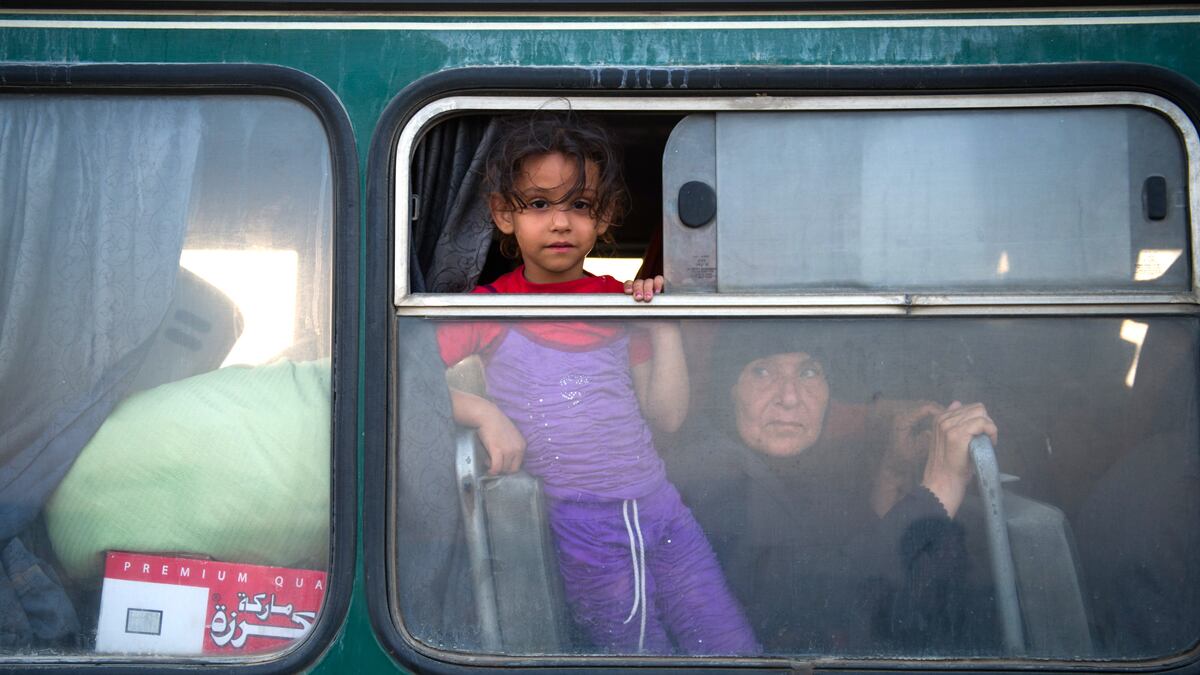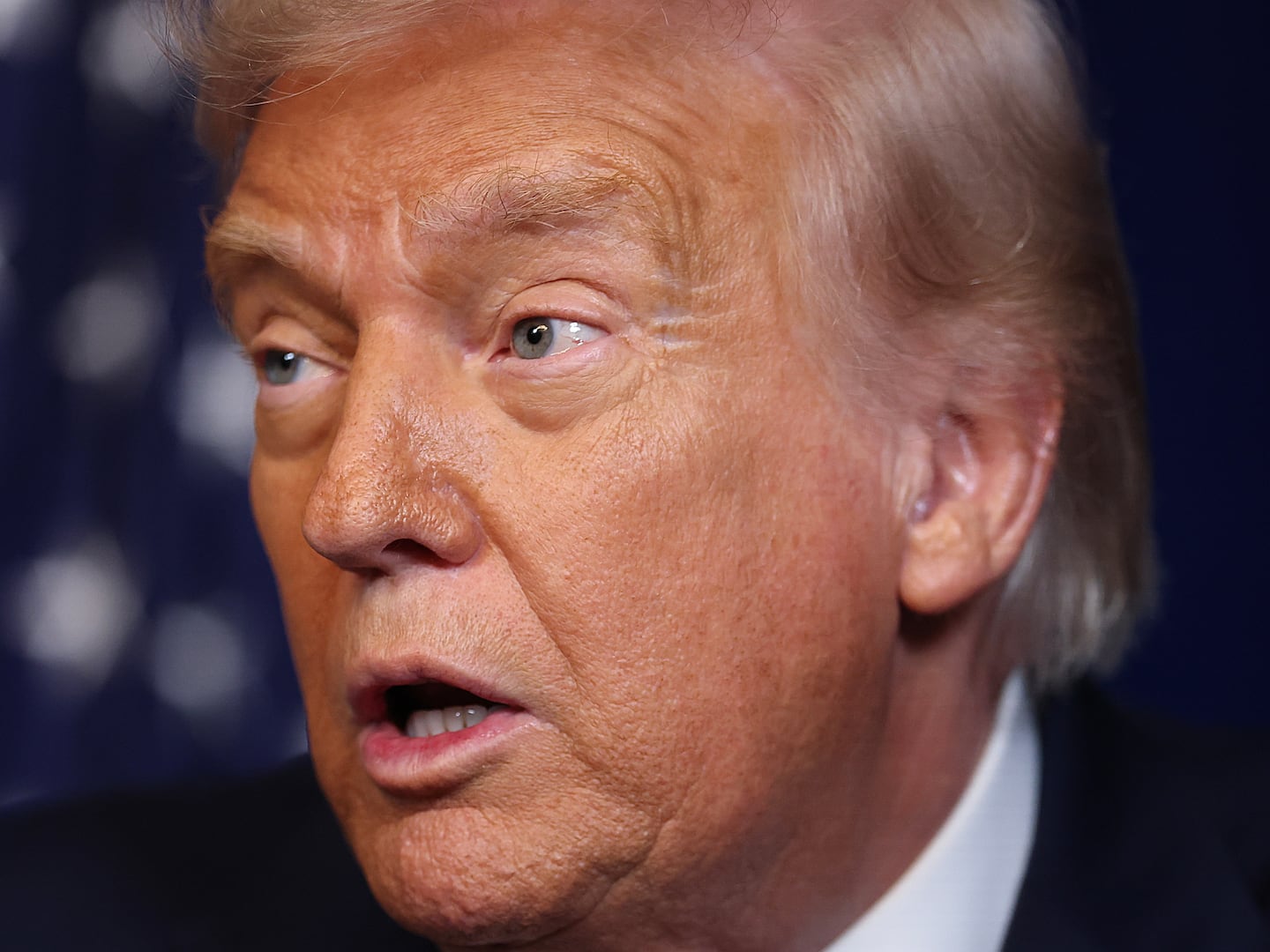The two Syrian men sitting beside me were using an oversized suitcase as a seat. The suitcase didn't have clothes in it, and I didn't want to ask what it actually contained. There were 10 of us packed shoulder to shoulder in one van. All that could be heard above the occasional murmur was the sound of our flak jackets and helmets smacking against the glass windows.
We met in Antakya and headed toward the Syrian border in Kilis, Turkey, the northernmost border crossing. It lies northwest of Aleppo.
"We will try to cross legally first, and if that doesn't work, we will try to cross illegally," our translator said."Where is the illegal border crossing?" I asked."Just 20 meters away," he said. It was closer than I thought. I could see the illegal crossing from the legal one here.The two men who had been sitting next to me on the suitcase decided to cross illegally. And they did it with ease. We met them on the other side."Where have you guys been? We have been waiting here forever. You are so slow!" they said, laughing.
We crossed legally. And though it took longer, we also didn't experience any problems.
"What are you doing here in Las Vegas? The officer asked me as he stamped my passport. "Welcome to California." He didn't make any sense. Did he really think Las Vegas was in California? Why wasn't he asking me what I, a white girl with a flak jacket, was doing crossing into Syria? He barely flipped through the pages in my passport. But I walked straight through and didn't look back. I was in Syria.

The Syrian independence flags waved above the official border crossing and under them stood the Free Syrian Army rebels who protected it.
"Ahlan wa sahlan. Welcome to Syria," one of them said as he shook my hand, his AK-47 slapping me in the arm.
The other interrupted our greeting. "You’re from America? I have a question: where is Obama? Where is his help? Where?" He asked it with a flick of his hand—a trademark Syrian gesture.
The 10 of us hopped into the back of a white van and headed out toward Al Bab. It was time for Iftar—the evening meal breaking the fast—and one of the men riding with us pulled out a bag of dates and shared them. Everyone reached in to grab a handful. Most of them had been fasting all day. As I reached in, one of the men looked at me and yelled across the van.
"Hey, you! How old are you?" "23," I said. "Oh, wow. You are young," he said with a sigh. "I will pray for you."
We stopped first in Azaz, a town where violence has escalated in the past two weeks. As we pulled up to the outskirts, we could see that the entire front part of the town had been bombed out. FSA tanks had been burned and left in front of the main mosque. The streets were quiet. An FSA officer greeted us in front of the rubble.
"There are still bodies that need to be found." he said. "You can see dead people buried under some of the bombed houses."
Other journalists who had just passed the border also were filming and reporting in the area. In recent weeks, more and more have been crossing through the Lebanese and Turkish borders to report from inside Syria. What was considered an almost impossible mission before has become a frequent journey for many covering the Middle East. Borders are easier to pass through now, but the risks are still just a high as they were when the conflict started in 2011.
The most immediate concern is the daily air strikes by Bashar al-Assad's forces on cities such as Damascus and Aleppo. But the attacks have no pattern, making reporting in the region even more dangerous.
We were headed for Al Bab, a town northeast of Aleppo that was liberated by rebel forces last month. The town had been relatively quiet in recent weeks, but on the day we crossed into the country, as many as four rockets dropped into the town, one of them killing a 6-year-old girl. She was a refugee who had fled downtown Aleppo with her family to live in a safer area. Fifteen citizens in total were injured in the attacks.
One of the other bombs that fell Thursday morning hit a school in the center of town.
Al-Assad's forces have consistently bombed schools and hospitals in the surrounding Aleppo area as such facilities often are used as safe havens for FSA. Now, doctors in Al Bab have been forced to open makeshift, secret hospitals to avoid becoming targets.
Government airplanes continued to circle Al Bab late into Thursday night. A popular coffee shop pulled down its protective doors as the drones got louder. A few men got up from their seats and looked up into the sky.
All they could do was wait. No one could tell when the next bomb would fall. They stepped back inside, picked up their pipes, and continued smoking their shisha.






